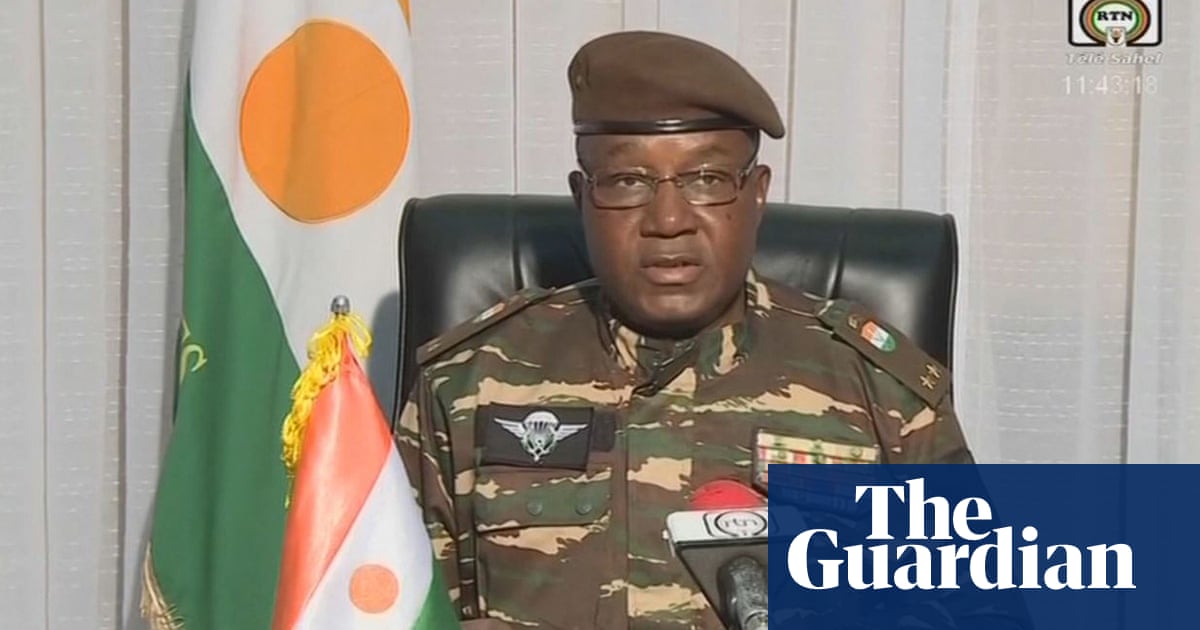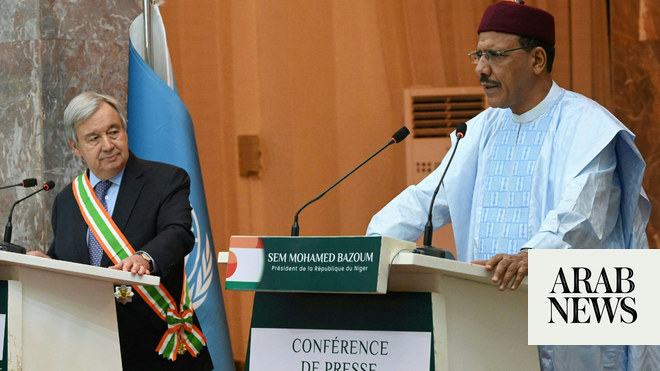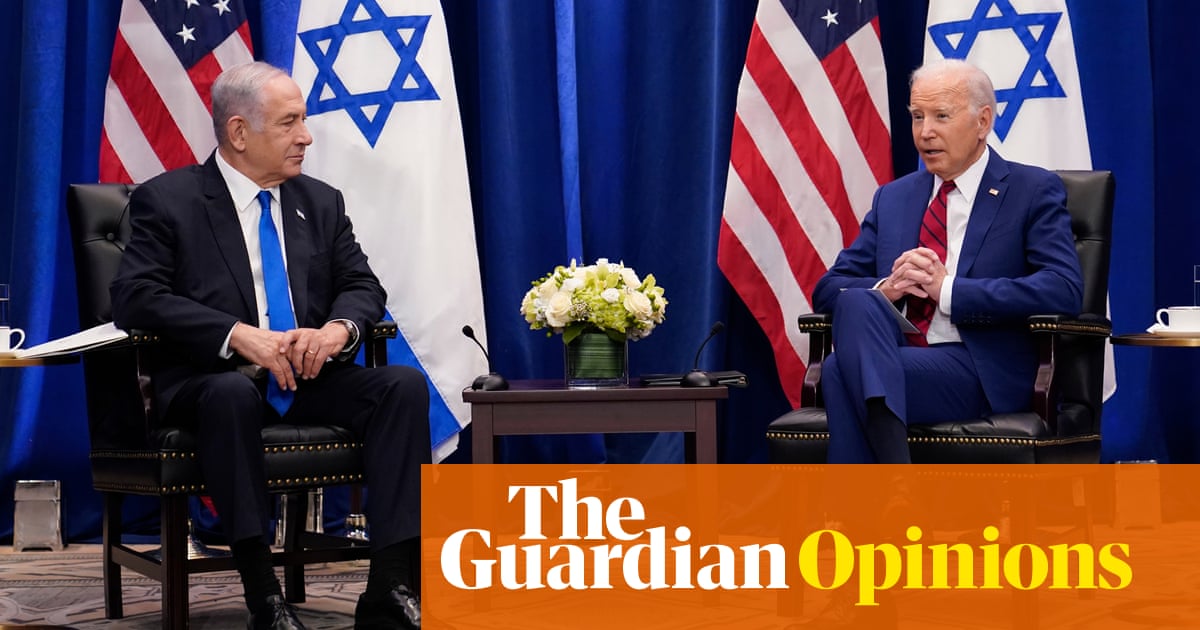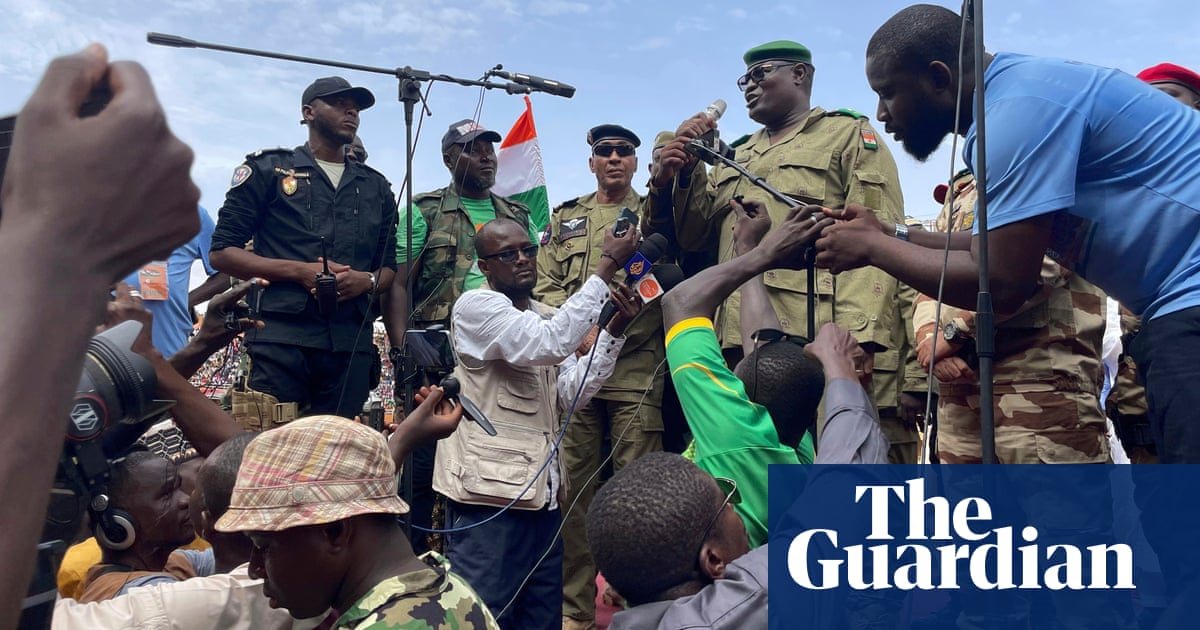
Gen Abdourahamane Tchiani, the Nigerien military leader behind the coup against the country’s democratically elected president, has been declared head of state by soldiers backing him as he made a televised address calling for support.
Tchiani, the head of Niger’s presidential guard, which first acted against President Mohamed Bazoum on Wednesday, identified himself as the leader of the group of soldiers behind the coup.
Justifying his actions, which have drawn the threat of sanctions from the EU and France, Tchiani said: “We can no longer continue with the same approaches proposed so far, at the risk of witnessing the gradual and inevitable demise of our country. That is why we decided to intervene and take responsibility.”
In a direct appeal to foreign governments who backed Bazoum, seen as a key ally in the fight against jihadist groups in the region, Tchiani said: “I ask the technical and financial partners who are friends of Niger to understand the specific situation of our country in order to provide it with all the support necessary to enable it to meet the challenges.”
Later, army colonel Amadou Abdramane, who first announced the military takeover, said Tchiani was now the head of state of Niger and that the constitution and other institutions had been dissolved.
Tchaini and Abdramane’s announcements came as France and the EU threatened sanctions and denounced the coup.
Emmanuel Macron said France was prepared to support sanctions, describing developments in Niger as “dangerous” for the wider Sahel region.
Western powers have scrambled to preserve a key ally in a region that has been destabilised by jihadist insurgencies, coups, and interventions by the Wagner mercenary group, as Russian flags appeared at prominent sites around Niger’s capital, Niamey.
Macron, who was visiting Papua New Guinea, called for the release of the detained president, and said: “This coup is completely illegitimate and profoundly dangerous, for Nigeriens, for Niger and for the whole region.”
The EU has warned it will withdraw all budgetary support for Niger if there is “any breakdown in constitutional order”.
In a statement, the high representative for foreign affairs, Josep Borrell, denounced the coup as a “total violation of the democratic principles on which the management of political power in the region is based. Any breakdown in constitutional order will have consequences for cooperation between the EU and Niger, including the immediate suspension of all budgetary support,” he said.
The latest developments came as the head of the Wagner group, Yevgeny Prigozhin, who was recently embroiled in his own armed rebellion in Russia, appeared to weigh in, releasing an audio message on Friday saying: “What happened in Niger is nothing more than the struggle of the people of Niger against colonisers, who tried to impose their own rules of life.”
The message said “former colonisers are trying to keep the people of African countries in check” and “fill these countries with terrorists and various gangs, creating a colossal security crisis”.
Bazoum was detained with his family on Wednesday by his presidential guard at the residence next to the presidential palace. However, it was still not entirely clear who is running Niger and what mediation efforts are under way.
Coup supporters have staged demonstrations in Niamey, some waving Russian flags and denouncing France, while video on social media showed what appeared to be several assaults on politicians.
On Thursday, one crowd of several people chanted support for the Wagner group while waving Russian flags and later burning cars and ransacking the headquarters of the president’s political party.
“We’re fed up,” said Omar Issaka, one of the protesters. “Down with the French people. We’re going to collaborate with Russia now.”
Niger’s government has been seen by many in the international community as a bulwark against Islamist militancy in a vast arid region beset by security challenges. French and UN troops were in recent years forced to withdraw from neighbouring Mali, but France still has 1,500 soldiers in Niger. The overthrow of Bazoum could put the future of their deployment in doubt.
Bazoum, who was elected two years ago in Niger’s first peaceful, democratic transfer of power since it declared independence from France in 1960, has not yet resigned.
Some of the last public communications from the government included a defiant tweet by the president on Thursday declaring that democracy would prevail, and a call by the foreign minister, Hassoumi Massoudou, on the media outlet France 24, for Nigeriens to stand against the mutiny.
Someone close to the president who was not authorised to speak about the situation told the Associated Press that Bazoum had no intention of resigning and talks were taking place. However, it was not clear who was involved in the dialogues, the nature of the discussions or how they were proceeding.
Earlier this week, Ecowas (the Economic Community of West African States), said it was sending the president of Benin, Patrice Talon, to lead mediation efforts, but Talon was not in Niger as of Friday. The mutineers, in their first address to the country on Wednesday night, urged “external partners” not to interfere.
Analysts said the coup threatened to reshape the international community’s engagement with the Sahel region.










